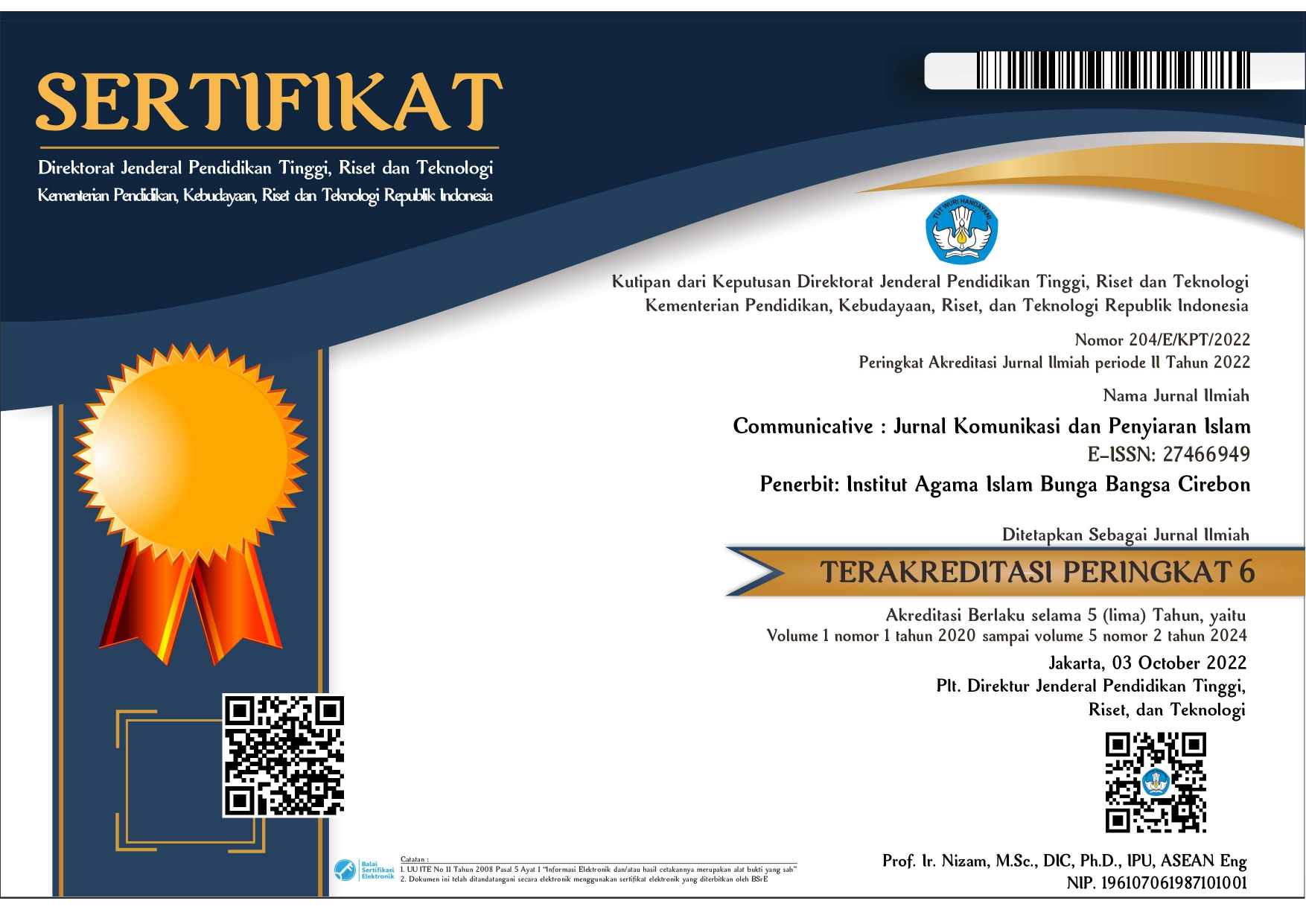PERILAKU PHUBBING PADA REMAJA DALAM PERSPEKTIF PSIKOLOGI KOMUNIKASI
Abstract
This research aims to examine and analyze the behavior of phubbing in adolescents from the perspective of communication psychology. The study uses a qualitative method, focusing its analysis on descriptive data in the form of observed written sentences. The data analysis in this research primarily focuses on library research. The data collection technique used is the literary technique by gathering literature related to the object of study. The data sources for this research include reference books and scientific journal articles. The data are then analyzed using content analysis to identify, classify, and analyze the information found in the literature related to the research topic. The results of this research indicate that phubbing behavior is driven by a fear of missing out (FoMO) on certain information or events, a dependency on smartphones as individuals rely on them for all daily activities. The impact of phubbing is evident among adolescents and within families/parents and children, leading to feelings of being ignored, unclear communication, disturbed psychological relationships, high levels of rejection from children toward parents, and negatively affecting adolescents' mental well-being.
Downloads

This work is licensed under a Creative Commons Attribution 4.0 International License.














